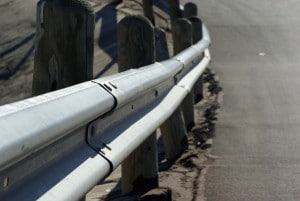Trinity Industries, facing increasing criticism that drivers can be impaled by its ET-Plus guardrail system in the event of a collision, indicated that it would cease sales of the product, which 39 states have now banned, in October 2014, until it could complete further testing. On October 20, 2014, a jury found that the company had defrauded the Federal Highway Administration (FHA) when it neglected to inform the government of changes it had made in 2005 to the guardrail. The next day, the FHA demanded that the ET-Plus be retested amid concerns that the alteration had made it more likely to cause injury.
If you believe that you may be eligible to file a Trinity guardrail lawsuit in Louisiana, contact Attorney Group for Louisiana for more information about pursuing a claim to seek compensation for your injuries. While compensation is never guaranteed, we can help you determine if you are eligible to file a Trinity guardrail lawsuit in Louisiana, and we can connect you with an affiliated attorney who can help you throughout the legal process.
Trinity Guardrail Design Change
Poses Risks
At issue is the safety of the railhead, the end terminal at which a flat piece of steel is meant to glide along the rail and safely push the metal out of the way when it is impacted by a vehicle. However, in 2005, Trinity allegedly narrowed the channel behind the head, from five inches to four, without notifying federal authorities, possibly causing the system to jam, according to state officials.
At least 14 pending lawsuits blame the ET-Plus for causing injuries and deaths. While each state is ultimately responsible for its own highway equipment, the FHA plays a critical role by acting as a clearinghouse for safety and approving products for federal reimbursement. Additionally, the agency reportedly defended the product for more than two years, even after it had learned that the manufacturer neglected to report the change in design.
According to an agency spokesman, Trinity is required to retest the guardrail end terminal to ensure that it meets both the safety expectations of motorists on the highways as well as the safety criteria set by the states. Louisiana joins a list of states that will be banning the product from its highways pending further testing of the guardrail system and a resolution of current safety concerns.
Studies Show Potential Dangers
The Safety Institute released the results of a study conducted on the ET-Plus using crash data from Ohio and Missouri that shows the guardrail system is more likely to cause death and injury than other types of guardrail systems. The study, conducted by the University of Alabama at Birmingham, examined eight years of death and severe injury from crashes that occurred in the two states and that involved five separate end terminal designs on guardrails.
Researchers found that the ET-Plus design was 2.86 times more likely to result in a fatality and 1.36 times more likely to produce a severe injury than the previous Trinity design, the ET-2000. The study, which was sponsored by the Missouri Highways and Transportation Committee and The Safety Institute, analyzed single-vehicle accidents in which the cars veered off of the roadway in Missouri and Ohio from 2005 to 2014 and from 2005 to 2013, respectively. In each of the accidents, the most harmful event was officially determined to be contact with a guardrail.
Whistleblower Lawsuit Settled for $175 Million
The FHA maintains that it was unaware of the questionable design changes until a Trinity competitor brought it to the agency’s attention in 2012. Design alterations are legally required to be immediately reported to the agency. The whistleblower reportedly discovered the design changes during a 2011 investigation and eventually filed the whistleblower lawsuit on behalf of the federal government under the False Claims Act.
On October 20, 2014, a Texas jury found Trinity liable for defrauding the government by hiding the design changes and returned a $175 million verdict against the company. That amount could triple to $525 million under the federal False Claims Act.
Contact Us To Learn More About A Trinity Guardrail Lawsuit in Louisiana
If you or a loved one has been injured in a car accident and you believe that the ET-Plus guardrail system was involved, contact Attorney Group for Louisiana to determine whether you may be eligible to file a Trinity guardrail lawsuit in Louisiana. There are no out-of-pocket costs to speak to us, and we can put you in touch with an affiliated attorney who can assist you throughout the legal process. You may be eligible to recover damages for pain and suffering, medical costs or bills, and lost wages if your Trinity guardrail lawsuit in Louisiana is successful.





